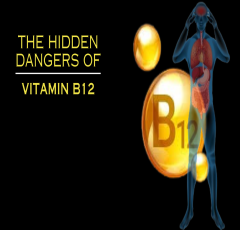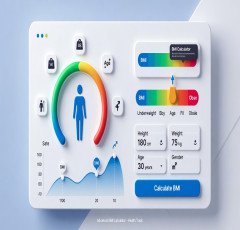Vitamin supplements for dogs may be helpful in some circumstances, but you should always speak with your vet before giving your dog any vitamins. Generally speaking, a comprehensive and well-balanced commercial dog food should offer all the vital vitamins and minerals your dog requires. However, certain canines can have particular medical issues or dietary inadequacies that could use further supplementing.
The following vitamins are typical ones that can be given to dogs as supplements:
The immune system, skin health, and joint health are all supported by vitamin C. Although canines are capable of producing their own vitamin C, some medical situations may call for supplementation.
Absorption of calcium and phosphorus, which is essential for strong bones, is facilitated by vitamin D. However, too much vitamin D can be hazardous, so it's crucial to heed the advice of your veterinarian.The B vitamins are thiamine (B1), riboflavin (B2), niacin (B3), pantothenic acid (B5), pyridoxine (B6), biotin (B7), folic acid (B9), and cobalamin (B12). These nutrients are crucial for metabolism and general health.Vitamin A, Vital for healthy vision, skin, and immune system.Vitamin E is an antioxidant, that strengthens the immune system and aids in cell damage prevention. While not vitamins, omega-3 fatty acids are frequently used as supplements to promote the health of the skin and coat, joints, and the cardiovascular system.
When giving your dog vitamins, always go by the recommendations of your veterinarian. Some dietary supplements may interact negatively with some medicines or be hazardous if taken in excess.
The right dosage will also depend on the age, breed, size, and health of your dog. Supplements for human vitamins shouldn't be given to dogs since they can contain chemicals that are toxic to them.
The best approach to make sure your dog is getting the right nutrients is to feed him a well-balanced, high-quality commercial dog food. If you have any questions about your dog's diet or health, you should also consult a veterinarian.
Puppies of large and enormous breeds, To meet their unique growth needs and prevent bone problems, supplementation with calcium or vitamin D may be advised.
Senior dogs, Supplementation can enhance the general health of older dogs because they may have lower nutrient absorption or specific age-related health issues.Dogs who are pregnant or nursing, Because of the increased nutritional needs of these dogs, vitamin supplementation may be recommended to boost their energy levels and the growth of healthy puppies.Dogs on homemade diets, There is a greater chance of nutritional imbalances if you make your dog's food at home. To make sure your dog is getting all the necessary nutrients in such circumstances, supplements could be required.
Keep the following in mind when choosing vitamin supplements for your dog
Select high-quality supplements designed especially for pets, Don't provide supplements to people because they can contain substances that are bad for pets.
Follow the veterinarian's advice on dose, Overdosing on some vitamins might have negative health repercussions for your dog.Examine your dog's regular diet, to make sure it's nutritionally balanced before introducing supplements. Most dogs' demands are typically satisfied by high-quality commercial dog meals.Each dog is different, so what works for one dog might not be appropriate for another. Before suggesting any supplements, your veterinarian will take your dog's age, size, breed, health, and existing diet into account.If you do add supplements, keep an eye out for any adjustments in your dog's behavior, looks, or general health. Please contact your veterinarian right away if you have any negative symptoms.
While vitamin supplements may be useful in some situations, they are not a universally effective treatment.
To ascertain whether your dog might profit from supplementation and to ensure you pick the appropriate products and dosages for your furry friend's unique needs, it is imperative that you consult with your veterinarian.
Avoid taking too many supplements, Too many vitamins might cause toxicity and other health problems. For instance, a vitamin D overdose may result in hypercalcemia, which is risky for dogs. Always adhere to the dosing instructions given by your veterinarian.
Think about natural sources, Instead of relying entirely on supplements, aim to offer critical vitamins through a well-balanced diet wherever possible. Most dogs don't need supplements because high-quality commercial dog diets frequently contain adequate levels of vital vitamins.Regular vet visits, It's crucial to regularly visit your vet to maintain your dog's health and dietary requirements. Depending on any changes in health state, your veterinarian can evaluate your dog's overall condition and may suggest modifying the food or supplementation plan.When buying vitamin supplements for your dog, look for items from trustworthy brands, as advised by your veterinarian. Look for supplements that have been created especially for dogs and that have passed strict safety and effectiveness testing.Properly store supplements, Keep them out of the reach of children and pets, in a cool, dry location, away from direct sunlight. Observe any particular storage recommendations listed on the product's label.Avoid self-diagnosis, Don't try to figure out what's wrong with your dog's health or treat it on your own. Consult your veterinarian for an accurate diagnosis and treatment if you believe your dog may be suffering from a nutritional shortage or any other health problem.Regular exercise and mental stimulation, are equally important for the wellbeing of your dog, even though supplements can help to support their overall health. A happy and healthy dog benefits from regular exercise and mental challenge.The choice to give your dog vitamin supplements, should ultimately be decided in conjunction with an experienced veterinarian. They may evaluate your dog's specific requirements, current health, and dietary preferences to decide whether supplementation is required and secure.
When administered properly and with a veterinarian's approval, vitamin supplements can be beneficial.
They do not, however, serve as a replacement for a well-balanced and wholesome diet. The easiest approach to make sure your dog gets the vitamins and minerals they need for good health is to feed them a well-balanced commercial dog food that matches their nutritional requirements.
Individual health issues, Certain canine health issues may call for specialized vitamin supplementation. For instance, dogs with specific gastrointestinal conditions or long-term illnesses may have trouble absorbing particular nutrients, thus supplements may be required to make up for any shortages.
Breed-specific factors, Because some dog breeds are more likely to experience particular health problems, supplements may be suggested to meet those breeds' particular requirements. If you want advice particular to a certain breed, ask your veterinarian.Megadoses should be avoided, because they can be hazardous to your dog's health. Follow your veterinarian's or the supplement manufacturer's recommended dosages.Vitamins are divided into two groups, those that are fat-soluble (such as Vitamins A, D, E, and K) and those that are water-soluble (such as Vitamins C and B vitamins). Water-soluble vitamins are excreted through urine rather than being stored by the body, therefore overconsumption normally has no harmful effects. On the other hand, fat-soluble vitamins can build up in the body and become poisonous in big doses.Selenium and vitamin E, While vitamin E is necessary for dogs, it's important to avoid taking excessive amounts of it because it can prevent their bodies from absorbing selenium, another vital element.Balance with minerals, It's crucial to make sure vitamin supplements are balanced with minerals when taking them. The health of your dog can be hampered by an imbalance, which can result in toxicities or deficiency.
If your veterinarian advises vitamin supplements to treat particular health issues, keep a close eye on your dog's condition to see if it improves. Changes for the better in your dog's mobility, coat quality, or energy levels could be signs that the supplements are helping.
Safety during pregnancy, If your dog is expecting or nursing, it's important to talk to your veterinarian about the best vitamin supplements to give her during this time to support both her health and the health of her puppies.
Each dog is different, and depending on their age, amount of activity, health, and personal metabolism, they may have different dietary requirements. Never begin giving your dog vitamin supplements without consulting your vet first, and never make significant food modifications without a doctor's approval.
In certain situations, vitamin supplements can be a beneficial addition to your dog's diet, but they shouldn't be given to them without consideration. Your pet buddy will live a long, healthy life if they eat a balanced, nutritionally complete diet and receive routine veterinary care.

























































































 Online Marketing
Online Marketing  Artificial Intelligence
Artificial Intelligence  Top Rated From Amazon
Top Rated From Amazon  1150+Trendy kids coloring pages Bundle
1150+Trendy kids coloring pages Bundle  Graphics & Design
Graphics & Design  Amazon Best Selling Products
Amazon Best Selling Products  Best Home Appliances
Best Home Appliances  SOFAS
SOFAS  RPM 3.0
RPM 3.0  Sennheiser
Sennheiser  The Click Engine
The Click Engine  All Wireless Products
All Wireless Products  Best Sellers On Amazon
Best Sellers On Amazon  Hot Bags For Pain Relief
Hot Bags For Pain Relief  Best Selling Books
Best Selling Books  Unlimited access to classes on illustration, photography, design, film, music
Unlimited access to classes on illustration, photography, design, film, music  TitTok Revolution
TitTok Revolution  Smart Doorbell
Smart Doorbell  ELECTRONIC ACCESSORIES
ELECTRONIC ACCESSORIES  Favorite Company (Cuelinks)
Favorite Company (Cuelinks)  BEST SELLER TOP10
BEST SELLER TOP10  SEO Checklist
SEO Checklist  NordPass
NordPass  Unreal Engine 5 For Beginners Learn The Basics Of Virtual Production
Unreal Engine 5 For Beginners Learn The Basics Of Virtual Production  Online Technology Classes
Online Technology Classes  Women Fashion
Women Fashion  One World Collection
One World Collection  Men Clothing
Men Clothing  Best Robotic Vacuum Cleaners
Best Robotic Vacuum Cleaners  NordLocker
NordLocker  NordVPN
NordVPN  Acer Laptop
Acer Laptop  Creative Brief For Video Shoot
Creative Brief For Video Shoot  ASUS Laptop
ASUS Laptop  ASPINAL LONDON
ASPINAL LONDON  The Secret Email System
The Secret Email System  Only For The United States
Only For The United States  Hello Theme
Hello Theme 
















